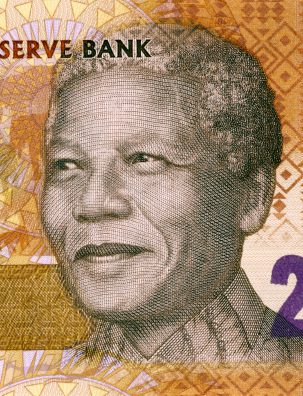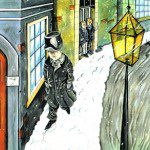 A troublemaker for peace died yesterday. The man born with the name “Rolihlahla”—which literally means “pulling the branch of a tree” and which is colloquially rendered “troublemaker”—died in peace.
A troublemaker for peace died yesterday. The man born with the name “Rolihlahla”—which literally means “pulling the branch of a tree” and which is colloquially rendered “troublemaker”—died in peace.
Nelson Mandela brought peace to South Africa by making trouble. One cannot always make peace without conflict. Those who would shy away from conflict involving injustices are not about peace, but the status quo, for peace always entails advancing justice. Having been an advocate in his early years for non-violent resistance and then for armed struggle, Mandela became known in his later years for cultivating a culture of love rather than hate that entailed justice.
I received the news of Mandela’s death upon returning from participating in a Christian conference titled Convicted Civility: Candid Conversations in a Conflictual Culture, with keynote speaker Richard J. Mouw. Mouw’s powerful reflections included the claim that we cannot always be civil; when oppression exists, Christian leaders will be called upon to confront the oppressors in forceful terms. What that looks like will vary from one situation to another. Moreover, when one confronts depends on a variety of factors, including one’s motives and what’s at stake if there is no confrontation and how confrontation can lead to redemptive ends.
Still, we cannot tolerate injustice. As Dr. Martin Luther King, Jr. wrote from his Birmingham jail cell to the white clergy who were troubled over his civil disobedience,
“How can you advocate breaking some laws and obeying others?” The answer lies in the fact that there are two types of laws: just and unjust. I would be the first to advocate obeying just laws. One has not only a legal but a moral responsibility to obey just laws. Conversely, one has a moral responsibility to disobey unjust laws. I would agree with St. Augustine that “an unjust law is no law at all.”
Sometimes the most compassionate thing we can do is be uncivil by living out robust convictions that promote care for all people, especially the oppressed. Mandela and his people had been oppressed under an apartheid system, which in effect oppressed everyone, Black and White alike. The pressure of Mandela’s convictions for a just peace moved him beyond the status quo to reconciliation. As such, this troublemaker was a person of peace. What would you and I rather be? Pacifiers for the status quo or, like Mandela, troublemakers for peace?
This piece is cross-posted at The Institute for the Theology of Culture: New Wine, New Wineskins and at The Christian Post.













